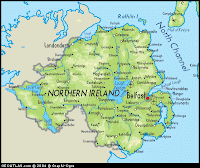 an election. In Britain there are 646 representatives, called Members of Parliament or MPs in the House of Commons. Each one of them represents one constituency. On the day of a general election, there is an election in each of these constituencies. No more than five years can pass between two general elections. On the Election Day, the winner takes it all. There are no extra seats in the House of Commons to be shared out to brave losers. Because it makes it very difficult for medium-sized or small parties to get any of their candidates elected as MPs, the British electoral system is often called unfair.
an election. In Britain there are 646 representatives, called Members of Parliament or MPs in the House of Commons. Each one of them represents one constituency. On the day of a general election, there is an election in each of these constituencies. No more than five years can pass between two general elections. On the Election Day, the winner takes it all. There are no extra seats in the House of Commons to be shared out to brave losers. Because it makes it very difficult for medium-sized or small parties to get any of their candidates elected as MPs, the British electoral system is often called unfair.The leader of the party with the largest number of MPs is the Prime Minister. The prime minister has enormous power like for example he decides the government’s overall strategy. The MPs has the greatest political power - Now, what do they do? They are involved in considering and proposing new laws and can use their position to ask government ministers questions about current issues. They split their time between working in parliament itself, working in the constituency that elected them, and working for their political party. Most MPs are members of one of the three biggest political parties.
The House of Lords is made up of 750 members called Peers. What they do is that they spend about 60% of their time initiating, examining and revising legislation. They are questioning Government and debating policy and finally providing a forum of independent expertise. There are a few ways to become a member of the House of Lords. One example is that you can inherit a title. The Peers are not elected by the people, but can also be elected by the government.
The third part of parliament is the Monarch, ergo the Queen. The Monarch is the official head of state. The monarch does not play any part in the decision making process of parliament. So the monarch rules only symbolically. But the Queen does have to sign the laws that parliament votes for.









